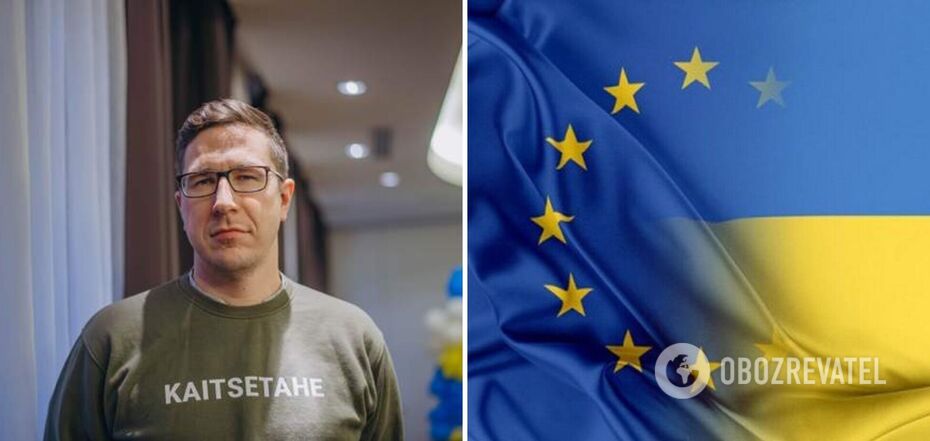World
Estonia has developed a €100 billion aid plan for Ukraine from the EU: what is happening
Ukraine needs 120 billion euros to win the war. They can be borrowed from financial markets or allocated from national budgets.
This was stated by Kusti Salm, permanent secretary of the Estonian Ministry of Defense, Euractiv reports. Part of this amount can be financed by Eurobonds.
The European Commission could raise funds from financial markets and use a group of 27 EU member states as a guarantee. This option would allow access to money as early as possible, the Estonian official said.
For Ukraine to win, its Western allies need to invest 0.25% of their GDP in military aid to the country. A strategy developed by Estonia should serve as a basis. It details where the money will be spent, mainly on defense equipment and ammunition.
If the more than 50 countries in the U.S.-led Ramstein coalition supporting Ukraine spent that percentage, it would amount to more than 120 billion euros a year, Salm said.
"With this money, by 2025, Ukraine will reach a point where they can effectively confront Russia," he said.
Even if this amount of money starts flowing into the budgets now, it will take almost a year, Salm warned.
"It will take another nine months or so to get the supply to the level needed for Ukraine to likely reach that level of depletion," he said.
Asked how long the €120 billion annually would last against the €130 billion spent by Russia, according to SIPRI, Salm said the Estonian figure "does not include other figures such as Ukraine's spending, Western military training, civilian aid, etc... so the actual amount needed is higher than that," suggesting it already matches Russian spending.
He noted that Western allies are currently spending half of what Russia is spending on the war: "$5.5 billion from the West, $10 billion from Russia."
For the Estonians, allocating 0.25% of GDP to Ukraine is affordable, showing that it would take very little effort for Ukraine to win the war, even without US involvement.
According to the country's analysis, this figure is 1/8 of the cost of the Ramstein format participants to help Ukraine.
Eurobonds would be a way to get access to the money as early as possible, the Estonian official said.
"Several countries have said that would be unattainable, and that's where the Eurobond discussion comes in, which has an element of solidarity," suggested Salm, where all 27 EU member states together would instruct the EU executive to find money on financial markets and be bound by interest rates.
Using the European Commission to issue debt to finance Ukraine's defense or expand defense production in Europe is seen as an option to increase the amount of money available as the bloc seeks to upgrade its military-industrial complex to shore up the production of defense equipment.
The use of Eurobonds to raise money, as the European Commission did to finance the economic recovery from the pandemic, has been put forward by several EU countries over the past few months, including the Belgians, Estonians, and French, as well as by European Council President Charles Michel.
The initiative has also gained support in Lithuania, Latvia, Poland, and some Mediterranean countries.
The EU can start with a one-time commitment of 100 billion euros or do it later.
When asked why this particular figure was raised and discussed, Salm said that, among other reasons, it is "perfect for an example of the price of defense readiness."
"100 billion euros buys you ten days of land warfare, and if we take into account all the needs, we're talking trillions. It sounds like high numbers, but they are still an order of magnitude less than the risk potential," he said.
As reported by OBOZ.UA, the Estonian Ministry of Defense has ordered to stop selling products of those companies that Ukraine has included on the list of international sponsors of the war. These include, in particular, PepsiCo, Mars, Nestle, Unilever, and Mondelēz International.
In addition, Estonia called on the European Union to confiscate 150 billion euros of frozen Russian assets. This should be done before the US presidential election in 2024, according to the country's Foreign Ministry.
Only verified information is available on the OBOZ.UA Telegram channel and Viber. Do not fall for fakes!



























